“The children are always ours, every single one of them, all over the globe; and I am beginning to suspect that whoever is incapable of recognizing this may be incapable of morality.”
Today’s Noodles are brought to you by Black Liturgies on Instagram.
Black Liturgies is from profoundly wise author Cole Arthur Riley. She wrote Black Liturgies: Prayers, Poems, and Meditations for Staying Human and This Here Flesh: Spirituality, Liberation, and the Stories That Make Us.
I had read Riley, but my wonderful classmate Reggie introduced me to Black Liturgies on Instagram. It has been a balm to my soul, especially this past week, when so much is being done in my name. In OUR names. An election-denying U.S. Speaker of the House who is likely to refuse to recognize any Democratic win of a presidential election. (It can happen. And it likely will. We are witnessing what so many folks have denied could happen in the U.S. and we’re witnessing it in real time.) With a child in Gaza dying every ten minutes. With the ways we contribute to the ongoing humanitarian crisis in the Democratic Republic of Congo, which gets so little coverage. With Ukraine. With gun violence here in Durham, and in the U.S. — that we as a country continue to value the “right” to own a handgun or assault rifle more than we value the “right” of children to walk safely to and from school. Or even to be safe in school. And so, so much more, all done in our names.
I’m acutely feeling the unpopularity and isolation of pacifism, of nonviolence always in all situations. I look to John Woolman and Dorothy Day and Quakers in my own Meeting - for their steadfastness, wisdom, and concern.
I also wish more folks understood that it is possible —and deeply moral, as James Baldwin told us— to care about multiple populations at the same time. To want them to live and thrive in safety and freedom, simply because they are human.
Black Liturgies
Yesterday’s post was especially helpful. I share it here with you, and encourage you to read (and buy!) Cole Arthur Riley’s work. And Ta-Nehisi Coates. And James Baldwin. Always, James Baldwin.
When I feel hopeless, I read James Baldwin.
Also, if you’re white like I am: yes, of course you are “allowed” to partake of these liturgies. Just remember: we are guests here. We are not the center of these stories.
“It’s a different kind of pain to realize a person you love is not who you believed them to be. To realize there are people you respect who remain unwilling to call evil by its name.” — Black Liturgies
“I’m terrified of the moral apathy—the death of the heart, which is happening in my country.” —James Baldwin
“I did not tell you that it would be okay, because I have never believed it would be okay. What I told you is what your grandparents tried to tell me: that this is your country, that this is your world, that this is your body, and you must find some way to live within the all of it.” —Ta-Nehisi Coates
“There are days—this is one of them—when you wonder what your role is in this country and what your future is in it. How, precisely, are you going to reconcile yourself to your situation here…” —James Baldwin
“INHALE — I stay near to my voice.
“EXHALE — I am not alone.” —Black Liturgies
“CONTEMPLATE:
“Explore any feelings of isolation in this season. Is there a person you have unmet expectations for? Are those expectations merited?
“Is there room to be in community with someone who is entrenched in historical and moral delusions? How do you gauge your capacity for such relationships? What boundaries would be helpful?
“Travel into a memory of a time you trusted this person. How are their current actions out of alignment with this memory. Avoid rushing to absolve them or demonize them; make space for the tension.” —Black Liturgies
Sometimes there’s no resolution, no “positive” take-away, no pithy ending.
And that’s okay.
It’s not only okay; it’s deeply human.
This is one of these times.
What if we all practiced, and got a little better at, not rushing to absolve or demonize?
What if we all got a little better at living with the tension?
XOXO

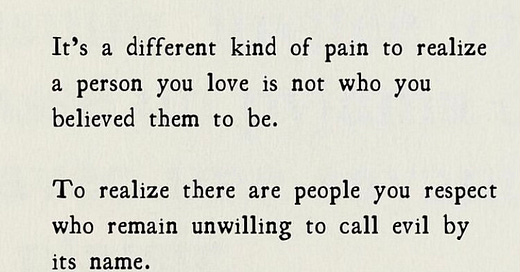


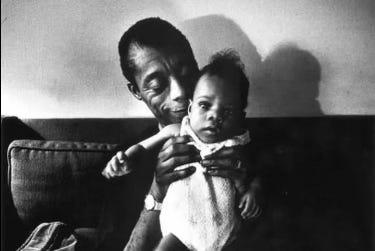

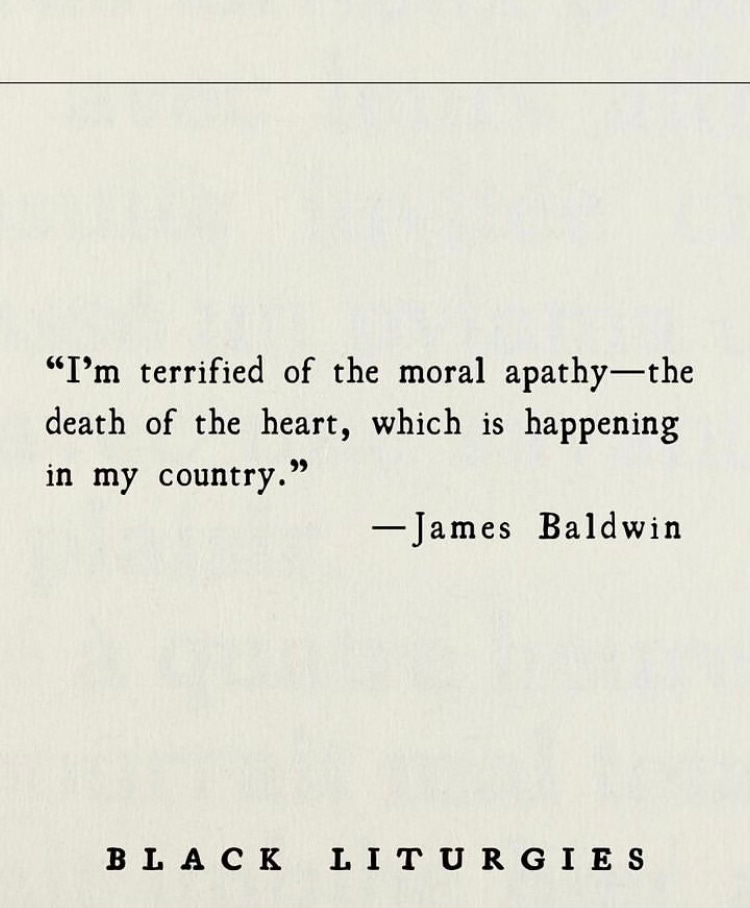
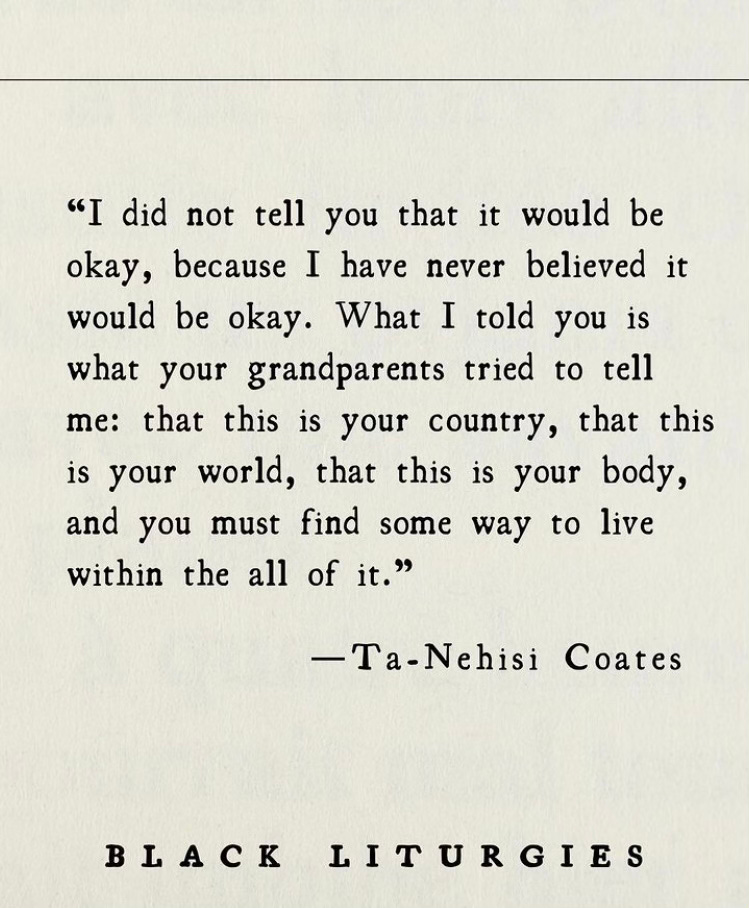
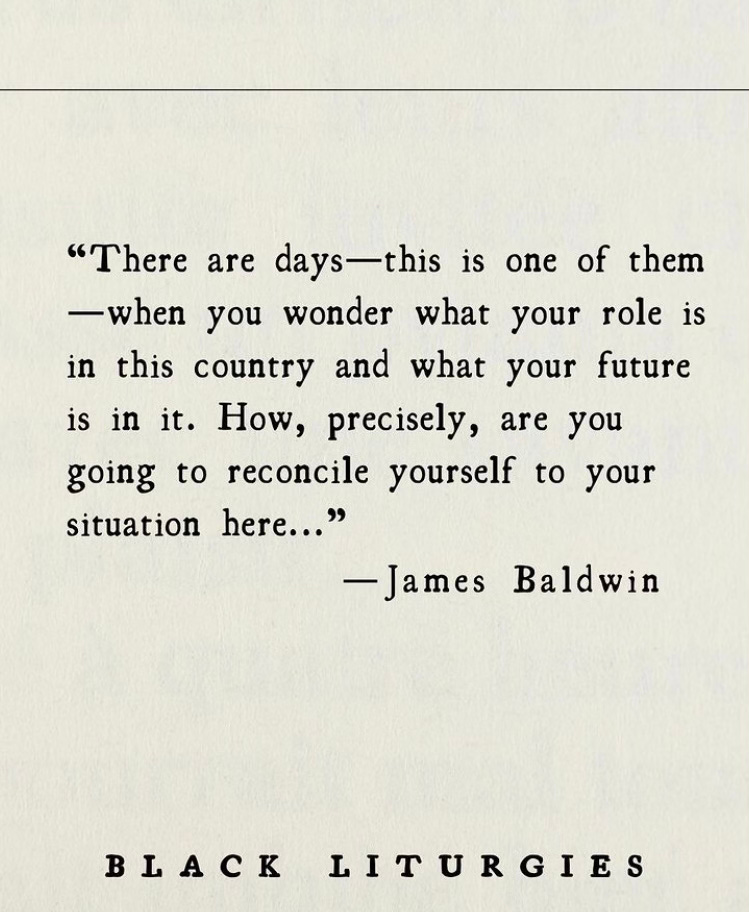

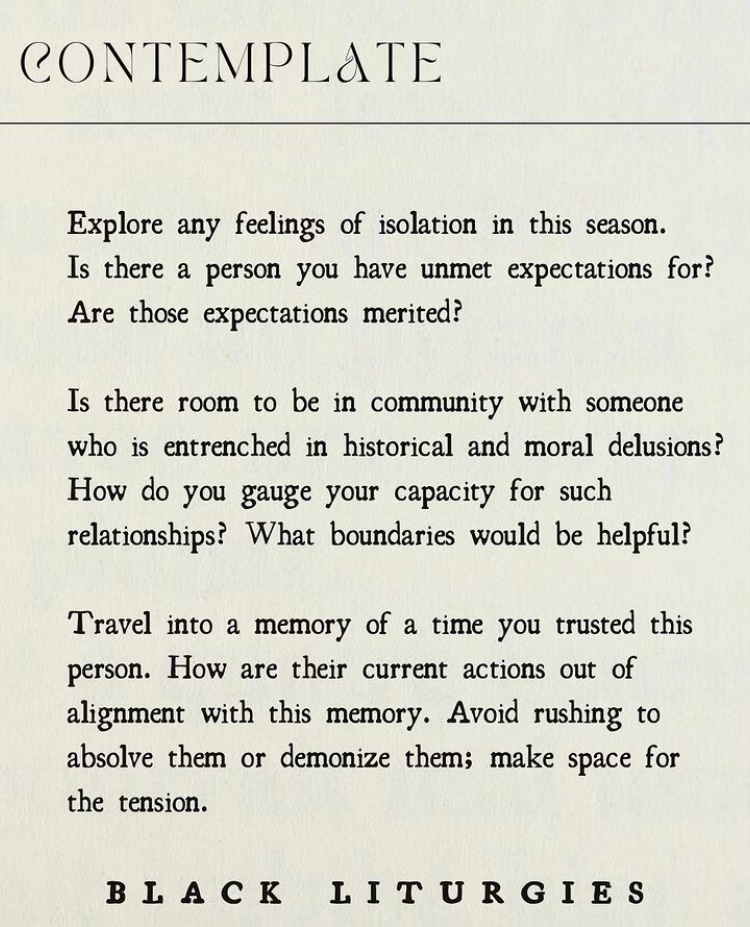
"What if we all practiced, and got a little better at, not rushing to absolve or demonize?
What if we all got a little better at living with the tension?"
Could this conflict with a moral obligation to name evil as such?
To help perpetrators and observers think?
Trump and MAGA mob and power-hungry pols and greedy rich folks eager to exploit evil for profit.
Putin and Russian fascists who love their great leader.
Hamas and Settlers and politicians eager to exploit evil for power.